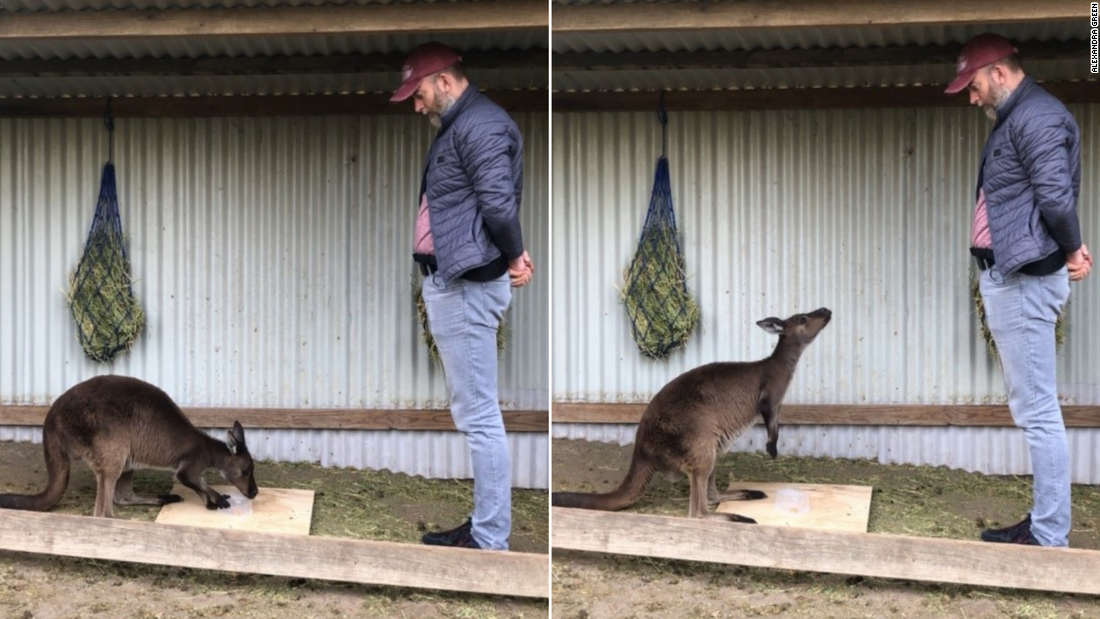
Researchers found that kangaroos communicated ‘intentionally’ with humans – a behavior previously thought to be reserved for domesticated animals, such as dogs, horses or goats.
Experts from London’s University of Roehampton and the University of Sydney set up a task known as “the insoluble problem task”, in which they gave kangaroos food locked in a plastic container.
After trying and failing to open the boxes, the kangaroos turned their gaze to a nearby human – and sometimes even bumped or scratched them to ask for help, researchers said.
“Their gaze was pretty intense,” study co-author Alexandra Green, a postdoctoral researcher at the Sydney School of Veterinary Science at the University of Sydney, said in a statement.
“We previously thought that only domesticated animals try to ask for help with a problem. But kangaroos do it too. If they can’t open the box, they look at the human and back to the container. Some of them used their noses. nudge man and some approached man and started scratching at him and asking for help. “
Based on these new findings, the team believes that kangaroos – considered social animals, such as dogs and goats – may be able to modify their behavior to interact with humans.
“Through this study we were able to see that communication between animals can be learned and that the behavior of staring at humans to access food is not related to domestication,” said lead author Alan McElligott in a statement.
“Indeed, kangaroos exhibited a similar behavioral pattern that we have seen in dogs, horses and even goats when subjected to the same test,” McElligott, who was previously affiliated with the University of Roehampton and now an associate professor in animal behavior and welfare at the City University of Hong Kong, added.
Ten of the eleven kangaroos tested in the study “actively” watched the person who placed the food in the plastic container to get it. Nine of the 11 animals engaged in an “enhanced form of communication,” researchers said, alternating their gaze between the container and the person present.
The study involved captive animals from a number of zoos in Australia. The animals, while familiar with humans, were considered non-domesticated.
“Our research shows that the potential of intentional communication with humans by animals is underestimated, indicating an exciting development in this area,” said McElligott.
“Kangaroos are the first marsupials to be studied in this way and the positive results should lead to more cognitive research than the usual pet species,” he added.
